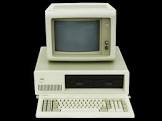The Personal Computer: A Modern Essential
In today’s digital age, the personal computer has become an essential tool for work, communication, entertainment, and so much more. From desktops to laptops, these devices have revolutionized the way we live and work.
One of the key advantages of a personal computer is its versatility. With a PC, you can perform a wide range of tasks, from browsing the internet and sending emails to creating documents and editing photos. The possibilities are endless.
Personal computers also play a vital role in the modern workplace. Many jobs require employees to use computers for tasks such as data entry, analysis, and communication. Having a reliable PC is crucial for productivity and efficiency.
Furthermore, personal computers have opened up new opportunities for learning and self-improvement. With online courses, tutorials, and resources available at your fingertips, you can expand your knowledge and skills in various fields.
Entertainment is another area where personal computers shine. Whether you enjoy watching movies, playing games, or listening to music, your PC can provide endless hours of enjoyment and relaxation.
As technology continues to evolve, so too does the personal computer. Today’s PCs are faster, more powerful, and more user-friendly than ever before. With advancements in hardware and software, the possibilities for what you can achieve with your computer are constantly expanding.
In conclusion, the personal computer has become an indispensable part of modern life. Its versatility, functionality, and entertainment value make it a must-have device for individuals of all ages. Whether you use it for work or play, the personal computer has truly transformed the way we live in today’s digital world.
“Exploring the World of Computing: Examples of Personal Computers”
3. “The Dawn of an Era: A Look at the First Personal Computers
- Who is known as the father of personal computer?
- What is personal computer examples?
- What were the first personal computers?
- What are the 3 types of personal computers?
Who is known as the father of personal computer?
The title of the “father of the personal computer” is often attributed to Sir Clive Sinclair, a British inventor and entrepreneur who played a significant role in popularising affordable home computers in the 1980s. Sinclair’s ZX series of computers, including the iconic ZX Spectrum, helped bring computing into households across the UK and beyond. His innovative designs and vision for making technology accessible to the masses have cemented his legacy as a pioneer in the development of personal computers.
What is personal computer examples?
One frequently asked question regarding personal computers is, “What are some examples of personal computers?” Personal computer examples include desktop computers, laptops, tablets, and smartphones. Desktop computers are stationary devices with a separate monitor, keyboard, and mouse. Laptops are portable computers that offer the convenience of on-the-go computing. Tablets are touchscreen devices that provide a mix of smartphone and laptop functionalities. Smartphones are handheld devices that combine communication capabilities with computing power. These examples showcase the diverse range of personal computers available to suit various needs and preferences in today’s digital age.
What were the first personal computers?
The question “What were the first personal computers?” is a common inquiry that delves into the fascinating history of computing. The evolution of personal computers dates back to the mid-20th century, with notable pioneers such as the Altair 8800, introduced in 1975 as one of the first commercially successful personal computers. Other early models include the IBM 5100 and the Apple I, both released in the 1970s, which laid the foundation for the innovative technology we rely on today. Exploring the origins of these early personal computers provides valuable insight into how far we have come in terms of technological advancement and how these pioneering devices have shaped our modern digital landscape.
What are the 3 types of personal computers?
When it comes to personal computers, there are three main types that are commonly used: desktop computers, laptop computers, and tablet computers. Desktop computers are typically larger in size and are designed to stay in one location, offering high performance and customization options. Laptops, on the other hand, are portable devices that provide convenience and mobility for users who need to work on the go. Tablet computers are compact and lightweight devices with touchscreen interfaces, making them ideal for tasks like browsing the internet, watching videos, and reading e-books. Each type of personal computer has its own advantages and features to cater to different needs and preferences.

Leave a Reply